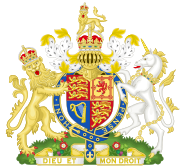Facts
At the time, the Overseas Development Administration (ODA) was under the supervision of the Foreign Secretary and the Foreign and Commonwealth Office, its primary remit being to promote UK exports to the developing world ("aid through trade"). During this period, it has been alleged that there was a connection between the granting of aid and the achievement of either foreign policy goals or British companies winning export orders.
A scandal erupted concerning the UK funding of a hydroelectric dam on the Pergau River in Malaysia, near the Thai border. Building work began in 1991 with money from the UK foreign aid budget. Concurrently, the Malaysian government bought around £1 billion worth of arms from the UK. The suggested linkage of arms deals to aid became the subject of a UK government inquiry from March 1994. In November 1994, the World Development Movement applied for judicial review.

The Foreign, Commonwealth & Development Office (FCDO) is a department of the Government of the United Kingdom. Equivalent to other countries' ministries of foreign affairs, it was created on 2 September 2020 through the merger of the Foreign & Commonwealth Office (FCO) and the Department for International Development (DFID). The FCO was itself created in 1968 by the merger of the Foreign Office (FO) and the Commonwealth Office. The department in its various forms is responsible for representing and promoting British interests worldwide.

The Department for International Development (DFID) was a department of HM Government responsible for administering foreign aid from 1997 to 2020. The goal of the department was "to promote sustainable development and eliminate world poverty". DFID was headed by the United Kingdom's Secretary of State for International Development. The position was last held between 13 February 2020 and the department's abolishment on 2 September 2020 by Anne-Marie Trevelyan. In a 2010 report by the Development Assistance Committee (DAC), DFID was described as "an international development leader in times of global crisis". The UK aid logo is often used to publicly acknowledge DFID's development programmes are funded by UK taxpayers.
Global Affairs Canada is the department of the Government of Canada that manages Canada's diplomatic and consular relations, promotes Canadian international trade, and leads Canada's international development and humanitarian assistance. It is also responsible for maintaining Canadian government offices abroad with diplomatic and consular status on behalf of all government departments.

Douglas Richard Hurd, Baron Hurd of Westwell, is a British Conservative Party politician who served in the governments of Margaret Thatcher and John Major from 1979 to 1995.

Back to Basics was a political campaign announced by British Prime Minister John Major at the Conservative Party conference of 1993 in Blackpool.

The Department of Foreign Affairs and Trade (DFAT) is the department of the Australian federal government responsible for foreign policy and relations, international aid, consular services and trade and investment. Australia's total official development assistance (ODA) decreased in 2022 due to differences in Australia's financial year reporting and the timing of its COVID-19-related expenditure, representing 0.19% of gross national income (GNI).

The Campaign Against Arms Trade (CAAT) is a UK-based campaigning organisation working towards the abolition of the international arms trade. It was founded in 1974 by a coalition of peace groups. It has been involved in several high-profile campaigns, including a legal challenge against the Serious Fraud Office's decision to suspend a corruption investigation into BAE Systems in 2007. On 27 September 2012, it was honoured with a Right Livelihood Award for its "innovative and effective campaigning".

Tied aid is a kind of foreign aid. It must be spent on products & services provided by companies that are from the country providing the aid or in a group of selected countries.

The Department of Foreign Affairs is the executive department of the Philippine government tasked to contribute to the enhancement of national security, protection of the territorial integrity and national sovereignty, to participate in the national endeavor of sustaining development and enhancing the Philippines' competitive edge, to protect the rights and promote the welfare of Filipinos overseas and to mobilize them as partners in national development, to project a positive image of the Philippines, and to increase international understanding of Philippine culture for mutually-beneficial relations with other countries.
UK Defence and Security Exports (UKDSE), formerly known as Defence & Security Organisation (DSO) and the Defence Export Services Organisation (DESO), is an organisation within the Department for International Trade responsible for helping British arms companies export.
Pergau station or formally known as Stesen Janaelektrik Sultan Ismail Petra is a hydroelectric power station in Kuala Yong, Kelantan, Malaysia.
Sir Timothy Patrick Lankester, KCB, is a former President of Corpus Christi College, Oxford, England, and the first economic private secretary to Margaret Thatcher.
Judicial review is a part of UK constitutional law that enables people to challenge the exercise of power, usually by a public body. A person who contends that an exercise of power is unlawful may apply to the Administrative Court for a decision. If the court finds the decision unlawful it may have it set aside (quashed) and possibly award damages. A court may impose an injunction upon the public body.
Operation IA Feature, a covert Central Intelligence Agency operation, authorized U.S. government support for Jonas Savimbi's National Union for the Total Independence of Angola (UNITA) and Holden Roberto's National Liberation Front of Angola (FNLA) militants in the Angolan Civil War. It was closely linked with parallel efforts by South Africa and Zaire. President Gerald Ford approved the program on July 18, 1975 despite strong opposition from officials in the State Department and the CIA. The program's discovery shocked Congress into barring further U.S. involvement in Angola's Civil War through the Clark Amendment.

Illegality is one of the three broad headings of judicial review of administrative action in Singapore, the others being irrationality and procedural impropriety. To avoid acting illegally, an administrative body or public authority must correctly understand the law regulating its power to act and to make decisions, and give effect to it.

Threshold issues are legal requirements in Singapore administrative law that must be satisfied by applicants before their claims for judicial review of acts or decisions of public authorities can be dealt with by the High Court. These include showing that they have standing to bring cases, and that the matters are amenable to judicial review and justiciable by the Court.
Foreign support in the Bosnian War included the funding, training or military support by foreign states and organizations outside Yugoslavia to any of the belligerents in the Bosnian War (1992–95).
R v Secretary of State for Foreign Affairs [1995] EWHC Admin 1 is a UK constitutional law case, concerning judicial review.

Sir Michael John Fordham,, styled The Hon. Mr Justice Fordham, is a judge of the High Court of England and Wales assigned to the King's Bench Division. He was appointed as a Justice of the High Court on 13 January 2020.











